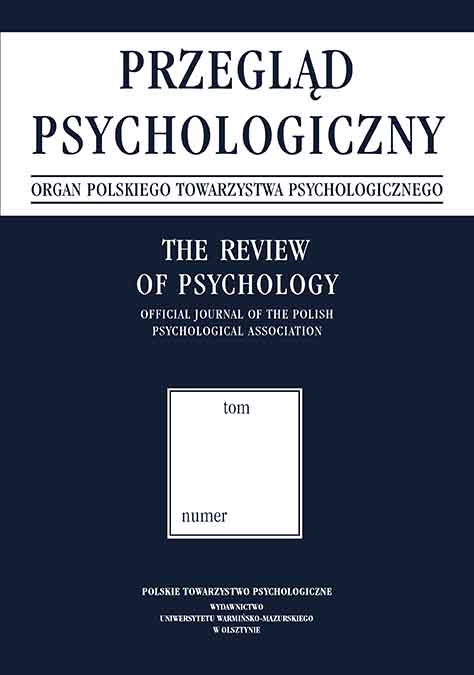Pamięć prospektywna osób z przewlekłymi chorobami układu oddechowego
Prospective memory of people with chronic respiratory diseases
Author(s): Marta WitkowskaSubject(s): Health and medicine and law, Demography and human biology
Published by: Wydawnictwo Uniwersytetu Warmińsko-Mazurskiego w Olsztynie
Keywords: Prospective memory; respiratory failure; COPD; bronchial asthma;
Summary/Abstract: Goal: The efficiency of the respiratory system determines good physical condition of a person and proper functioning of the brain. The failure of this system is associated with the processes of physiological aging of the body or chronic diseases such as chronic obstructive pulmonary disease (COPD). Reducing the transport of oxygen to the brain directly reduces mental performance. Prospective memory (PM) is a set of processes or abilities that enable the formulation of goals and intentions, their storage and implementation in the future. The main aim of the study was to determine the general characteristics of PM functioning in people with selected respiratory diseases. It was assumed that the type of disease and the degree of respiratory failure affect mental functions.Method: The study involved 116 adults (mean age = 52.4 years; SD = 6.41) diagnosed with bronchial asthma (N = 30) and COPD (N = 32). People from control groups also participated in them - patients with allergic rhinitis (N = 27) and healthy people (N = 27). There were no statistically significant differences between groups in terms of education and age of the study participants. The following methods were used: Prospective-Retrospective Memory Questionnaire, Rey-Osterrieth Complex Figure Test, WAIS-R Digit Repetition, Dot-Making Test, Beck Depression Inventory and an experimental-clinical task based on The Cambridge Prospective Memory Test (CAMPROMPT).Results: People with COPD, compared to control groups and patients with asthma, obtained lower results in virtually all tests examining cognitive functioning, including PM. The level of respiratory efficiency has been shown to be the strongest predictor of PM dysfunction in patients with COPD and asthma.Conclusion: Respiratory failure carries the risk of serious cognitive disorders that are related to respiratory indicators. Patients diagnosed with asthma or COPD are required to actively participate in therapy, including anticipating situations that may lead to the so-called exacerbations. However, the obtained results suggest that people with COPD may not be able to cope with the therapeutic requirements imposed on them.Goal: The efficiency of the respiratory system determines good physical condition of a person and proper functioning of the brain. The failure of this system is associated with the processes of physiological aging of the body or chronic diseases such as chronic obstructive pulmonary disease (COPD). Reducing the transport of oxygen to the brain directly reduces mental performance. Prospective memory (PM) is a set of processes or abilities that enable the formulation of goals and intentions, their storage and implementation in the future. The main aim of the study was to determine the general characteristics of PM functioning in people with selected respiratory diseases. It was assumed that the type of disease and the degree of respiratory failure affect mental functions.Method: The study involved 116 adults (mean age = 52.4 years; SD = 6.41) diagnosed with bronchial asthma (N = 30) and COPD (N = 32). People from control groups also participated in them - patients with allergic rhinitis (N = 27) and healthy people (N = 27). There were no statistically significant differences between groups in terms of education and age of the study participants. The following methods were used: Prospective-Retrospective Memory Questionnaire, Rey-Osterrieth Complex Figure Test, WAIS-R Digit Repetition, Dot-Making Test, Beck Depression Inventory and an experimental-clinical task based on The Cambridge Prospective Memory Test (CAMPROMPT).Results: People with COPD, compared to control groups and patients with asthma, obtained lower results in virtually all tests examining cognitive functioning, including PM. The level of respiratory efficiency has been shown to be the strongest predictor of PM dysfunction in patients with COPD and asthma.Conclusion: Respiratory failure carries the risk of serious cognitive disorders that are related to respiratory indicators. Patients diagnosed with asthma or COPD are required to actively participate in therapy, including anticipating situations that may lead to the so-called exacerbations. However, the obtained results suggest that people with COPD may not be able to cope with the therapeutic requirements imposed on them.
Journal: Przegląd Psychologiczny
- Issue Year: 67/2024
- Issue No: 1
- Page Range: 45-68
- Page Count: 24
- Language: Polish

